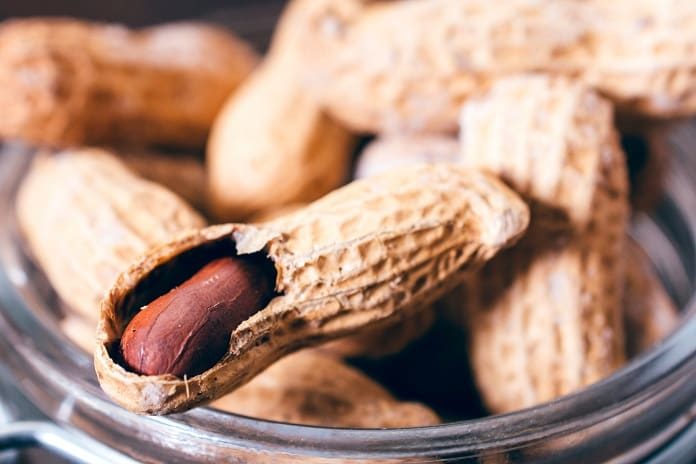A recent report has summarized current knowledge regarding the early introduction of peanuts to infants to lower their risk of developing peanut allergies.
Peanuts and peanut products are delicious and very nutritious. Peanuts are actually a legume, and they contain lots of heart-healthy monounsaturated fats, protein, vitamin E, niacin, copper, folate, manganese, iron, and more. They also contain a low percentage of carbohydrates and have a low glycemic index, which means that they are unlikely to spike blood sugar levels.
Although peanuts can be a nutritious snack to some, they can also be very dangerous to others. Peanut allergies are common, and the symptoms for them can be life-threatening for some people. As a result, peanuts are typically prohibited from school lunches in classrooms and certain food manufacturing facilities to minimize risk.
There are two major risk factors for developing a peanut allergy. Children with moderate to severe atopic dermatitis as well as children with an egg allergy are at an elevated risk of being allergic to peanuts. Furthermore, higher severity of atopic dermatitis is associated with a higher risk of peanut allergies.
However, a report summarizing guidelines for introducing peanut protein to reduce the risk of peanut allergy was recently published in the Canadian Medical Association Journal, which suggests that the risk of developing peanut allergies can be reduced by introducing peanuts and peanut products to babies at an early age. The report cites research published in the New England Journal of Medicine, a trial of 640 infants under eleven months of age with either moderate to severe atopic dermatitis or egg allergy revealed interesting findings. Just over three percent of participants who consumed two grams of peanut butter three times per week developed a peanut allergy within five years, while a whopping 17.2 percent of participants, who did not, developed a peanut allergy.
The report suggests that peanut butter, a more infant-friendly alternative to whole peanuts, can be introduced as one of the infant’s first foods between four to six months of age. Natural peanut butter with no added oils, refined sugars, or preservatives is best. According to the report, eight grams, or 1.5 teaspoons, of peanut butter consumed twice weekly is recommended to help protect against peanut allergy. This works best for infants with nonexistent to mild atopic dermatitis and no egg allergies; those with moderate-severe atopic dermatitis or egg allergies should undergo allergy testing in a doctor’s office prior to introducing peanut protein at home.
It is important to note that this is not a treatment for existing peanut allergies, and it does not guarantee that the infant will not develop a peanut allergy in the future, especially if they have one of the two primary risk factors. However, it is an interesting strategy that could be effective in reducing the risk of developing peanut allergies.
Written by Avery Bisbee
References:
Kalaichandran, A., Marrs, T., & Du Toit, G. (2019). Early Introduction of Infant-Safe Peanut Protein to Reduce the Risk of Peanut Allergy. Canadian Medical Association Journal,191(29). doi:10.1503/cmaj.181613
Early introduction of peanuts in babies to reduce allergy risk. (2019, July 22). Retrieved July 22, 2019, from https://www.eurekalert.org/pub_releases/2019-07/ji-eio071619.php
Du Toit G, Roberts G, Sayre PH, et al. Randomized trial of peanut consumption in infants at risk for peanut allergy. N Engl J Med 2015;372:803–13.
Lehman, S., MS. (2019, July 18). Peanut Nutrition Facts: Calories and Health Benefits. Retrieved July 22, 2019, from https://www.verywellfit.com/peanuts-and-peanut-butter-are-good-for-your-diet-2506569



